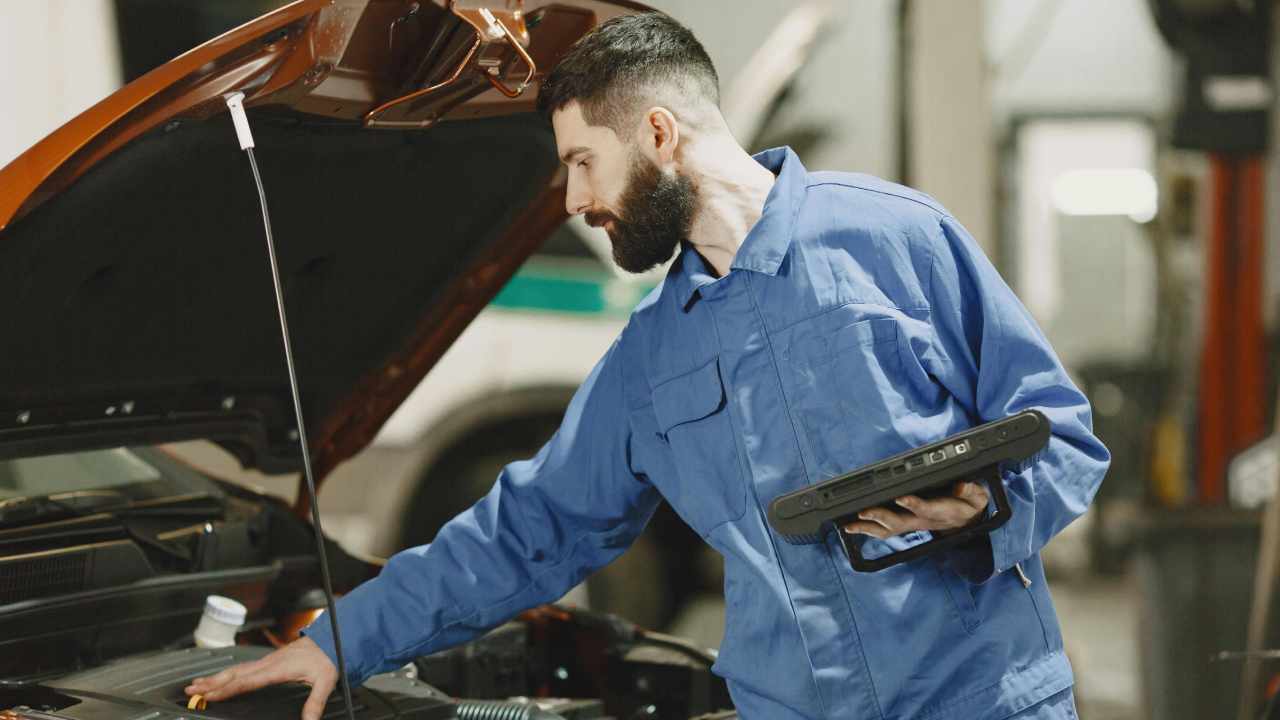Your car’s engine is its heart, and like any heart, it requires proper care to function smoothly and last for years. Keeping your engine healthy is essential for vehicle longevity, improved performance, and avoiding expensive repair bills. Whether you’re a car enthusiast, an everyday driver, or a DIY mechanic, this blog will walk you through understanding the factors that impact engine life, best maintenance practices, expert-backed tips, and steps for DIY care.
Read on to discover how you can keep your engine running like new for thousands of miles to come.
Understanding Engine Lifespan
Your engine’s lifespan depends on more than just what’s under the hood. Here’s everything you need to know about the factors that influence engine health and the red flags you shouldn’t ignore.
Factors That Affect Engine Lifespan
- Usage
Heavy usage, such as long commutes in stop-and-go traffic or hauling heavy loads, can wear down an engine faster than highway cruising. The types of trips you take and driving conditions play a significant role in engine wear.
- Maintenance
Regular maintenance is the most critical factor for prolonging an engine’s life. Neglecting things like oil changes, filter replacements, and tune-ups can lead to premature damage.
- Environmental Conditions
Excessive heat, humidity, and road conditions can also put strain on an engine, especially if you drive in extreme climates or on poor-quality roads.
Signs of Engine Wear
It’s crucial to detect and address issues early. Here are common warning signs of engine trouble to watch out for:
- Unusual noises, such as knocking or ticking sounds.
- Reduced fuel efficiency.
- Visible smoke from the exhaust.
- The dreaded “Check Engine” light.
If you notice these signs, it’s time to take immediate action—whether through DIY maintenance or consulting a professional mechanic.
Best Practices for Engine Maintenance
Routine maintenance is the key to preserving your engine and ensuring smooth operation. Here are the most important habits to adopt for optimal engine care.
1. Regular Oil Changes
Oil changes are like doctor visits for your engine; they’re non-negotiable. Engine oil lubricates moving parts, reduces friction, and helps keep the engine cool.
- Why it’s important: Overused oil thickens and loses its ability to lubricate, leading to increased wear and tear.
- How often to change it: For most cars, experts recommend changing oil every 5,000 to 7,500 miles. Always consult your vehicle’s manual for the manufacturer’s guidelines.
- Use the right oil: Ensure you’re using the recommended type and grade of oil for your engine. Synthetic oils may offer added benefits for high-performance engines.
2. Keep the Engine Clean and Well-Ventilated
A clean engine is a healthy engine. Dirt and debris can clog filters, obstruct airflow, and reduce efficiency.
- Regularly inspect your air filter and replace it when it becomes dirty or clogged. A clean filter ensures proper air intake, which improves fuel combustion and engine performance.
- Keep external components clean by occasionally wiping down the engine bay to remove dirt or oil buildup.
3. Monitor and Maintain Proper Engine Temperature
Engines operate best within a specific temperature range. Overheating can lead to costly damage.
- Check your coolant levels regularly and top them off when necessary.
- Inspect your radiator and thermostat for signs of wear or blockages.
- Watch for dashboard temperature warnings—never ignore them.
Expert Tips for Extending Engine Lifespan
Professional mechanics have seen it all when it comes to engine issues. Here’s what they recommend to keep your engine in tip-top shape.
1. Driving Habits Matter
- Avoid aggressive driving. Rapid acceleration, harsh braking, and high-speed driving put undue pressure on your engine.
- Warm up your engine before heavy use, especially in colder climates. A minute or two is all it takes for oil to circulate properly.
- Don’t overload your car. Carrying excessive weight can strain your engine and lower its efficiency.
2. Consider Fuel Additives
Fuel additives can help keep your engine clean by reducing the buildup of carbon deposits in fuel injectors and combustion chambers. Look for products recommended for your vehicle type, and use them as a supplement—not a substitute—for regular maintenance.
3. Stick to a Maintenance Schedule
Mechanics stress the importance of following the service schedule in your vehicle’s manual. Keep a record of completed maintenance tasks to ensure nothing falls through the cracks.
DIY Maintenance Guide
You don’t have to be a professional mechanic to perform basic engine maintenance. With the right tools and know-how, you can save time and money while keeping your engine in great shape.
Simple Maintenance Tasks to Try
- Check and Change Your Oil
- Use a dipstick to monitor oil levels regularly and ensure they’re within the recommended range.
- Drain old oil, replace the oil filter, and refill with fresh oil.
- Replace Air Filters
- Locate the air filter box, remove the filter, and inspect it for dirt or damage. A replacement typically takes only seconds.
- Inspect Belts and Hoses
- Look for signs of wear, such as frayed belts or cracked hoses. Replacing these parts is affordable and avoids engine overheating or mechanical failures.
- Spark Plug Replacement
- Faulty spark plugs can result in poor performance and reduced fuel economy. Refer to your vehicle’s manual for replacement steps.
Essential Tools for DIY Maintenance
- Socket wrench set
- Oil filter wrench
- Dipstick and funnel
- Screwdrivers and pliers
- Service manual for your vehicle
Safety tip: Always ensure the engine is cool before working on it, and use proper protective gear, such as gloves and safety glasses.
Prioritize Engine Health Today
Your engine is one of your car’s most valuable components—and it deserves the best care possible. Simple habits like regular maintenance, safe driving, and using quality products can dramatically extend its lifespan and keep your vehicle running smoothly.
Whether you’re an experienced DIY mechanic or just starting out, prioritizing engine health will save you money, reduce stress, and ensure you enjoy a reliable ride for years to come.
For more tips and professional insights, check out our additional resources or schedule a consultation with a certified mechanic today.

